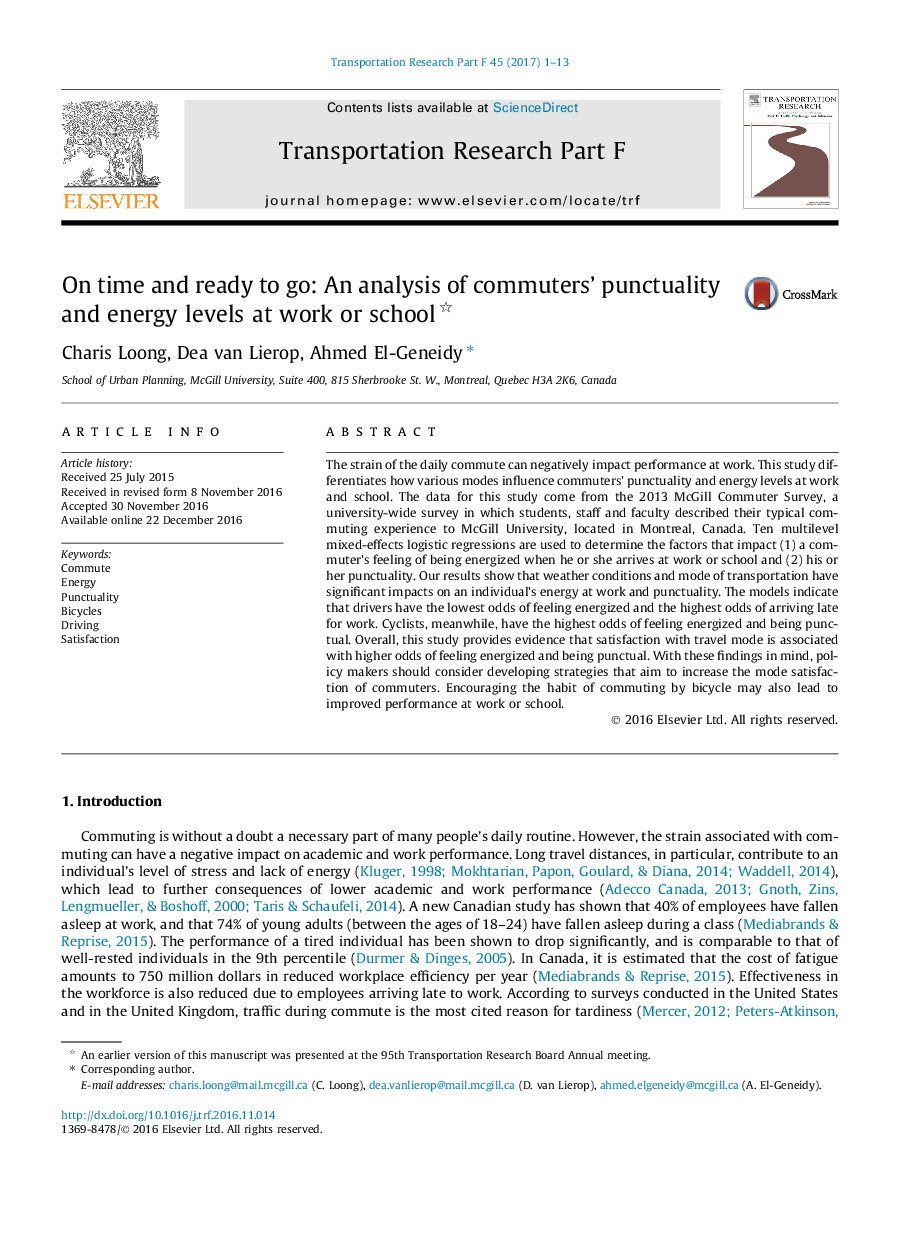| کد مقاله | کد نشریه | سال انتشار | مقاله انگلیسی | نسخه تمام متن |
|---|---|---|---|---|
| 5037314 | 1472440 | 2017 | 13 صفحه PDF | دانلود رایگان |
- An individual's commute has an impact on his or her energy at work.
- Drivers have the lowest odds of feeling energized at work.
- Bus riders have the highest odds of arriving late at work.
- Waiting time for transit users influences their odds of being punctual.
- Cyclists have the highest odds of being energized and punctual.
The strain of the daily commute can negatively impact performance at work. This study differentiates how various modes influence commuters' punctuality and energy levels at work and school. The data for this study come from the 2013 McGill Commuter Survey, a university-wide survey in which students, staff and faculty described their typical commuting experience to McGill University, located in Montreal, Canada. Ten multilevel mixed-effects logistic regressions are used to determine the factors that impact (1) a commuter's feeling of being energized when he or she arrives at work or school and (2) his or her punctuality. Our results show that weather conditions and mode of transportation have significant impacts on an individual's energy at work and punctuality. The models indicate that drivers have the lowest odds of feeling energized and the highest odds of arriving late for work. Cyclists, meanwhile, have the highest odds of feeling energized and being punctual. Overall, this study provides evidence that satisfaction with travel mode is associated with higher odds of feeling energized and being punctual. With these findings in mind, policy makers should consider developing strategies that aim to increase the mode satisfaction of commuters. Encouraging the habit of commuting by bicycle may also lead to improved performance at work or school.
Journal: Transportation Research Part F: Traffic Psychology and Behaviour - Volume 45, February 2017, Pages 1-13
